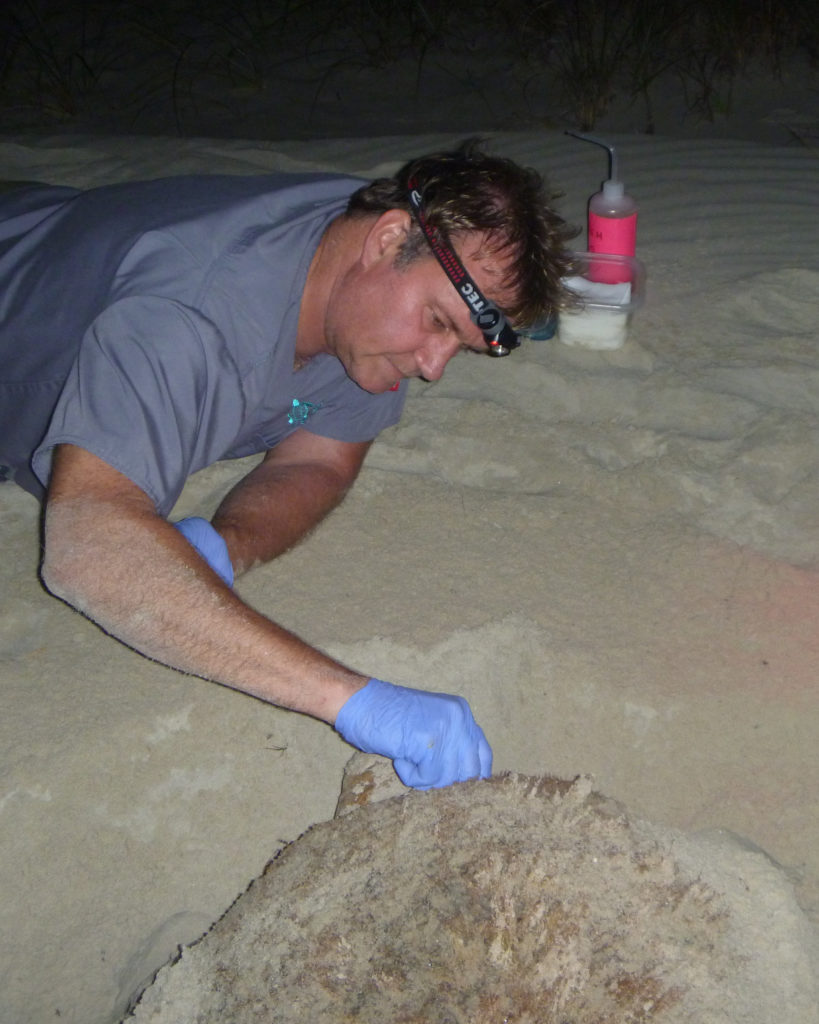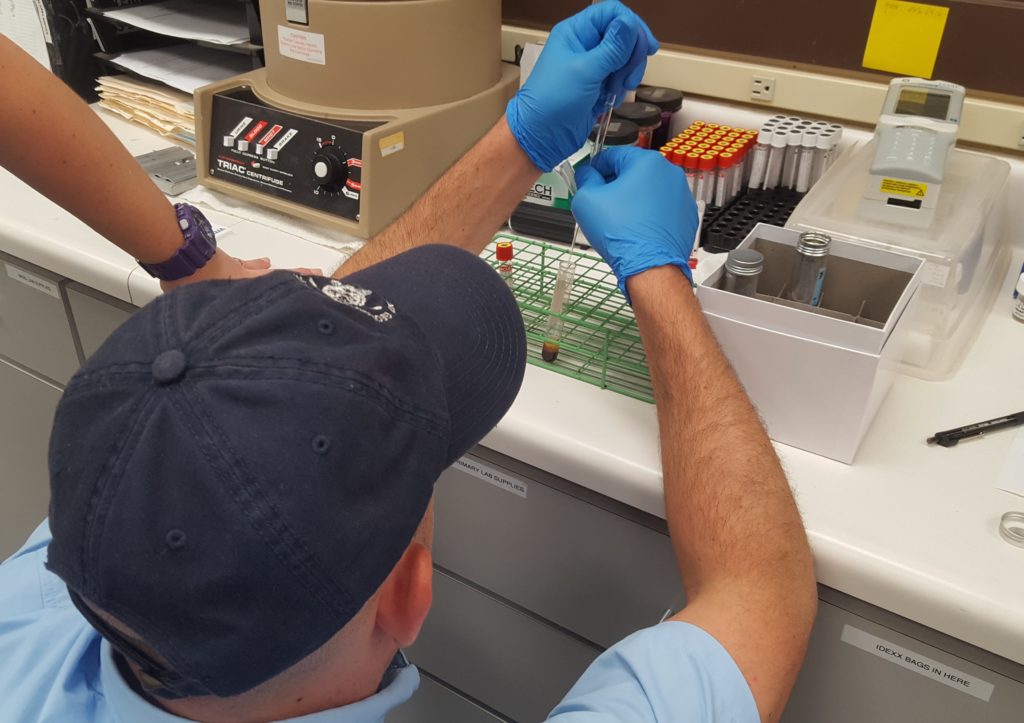By Breanna Ondich
GSTC Research Specialist
Visit the Georgia Sea Turtle Center and get an up-close look at turtle rehabilitation in action, explained inside the Learning Center and Rehabilitation Pavilion through educational programming, interpretive displays, and interactions with educators. Since it may not always be front and center, you might miss the fact that staff is always busy with research behind the scenes.
Research is one of the foundations of the Georgia Sea Turtle Center and studying nesting female Loggerhead Sea Turtles and monitoring their nests is the flagship project. The Center collects important and unique data to help understand the biology of these animals, identify threats, and monitor their recovery. Sea turtle research has been conducted on Jekyll Island since the late 1950s. Long-term wildlife monitoring programs are particularly important for species that live for many decades, like Loggerheads, as they provide an understanding of their biology and their response to conservation efforts and habitat change over long periods of time.
It is not novel news that sea turtles face numerous, high-profile threats such as being hit by boats, getting caught by active or abandoned fishing gear, ingesting plastic pieces, competing with coastal development for nesting habitat, and poaching. However, while invisible to the eye, water polluted with contaminants known as persistent organic pollutants (POPs) are also threats to sea turtles. POPs leach into rivers and oceans from common items like plastics, antibiotics, and human personal care products and can cause a depressed immune system, poor body condition, and low hatch success (fewer offspring) in sea turtles.
Beginning in 2019, the GSTC partnered with collaborators from the University of Georgia, Florida Atlantic University-Harbor Branch Oceanographic Institute, and Loggerhead Marinelife Center to find out if Loggerhead Sea Turtles that nest on Jekyll Island have these POP contaminants in their blood and if they are passing them down to their hatchlings. GSTC research and veterinary staff use the UTVs funded by the Jekyll Island Foundation to intercept as many nesting sea turtles as possible to collect blood samples once the turtles have already committed to laying eggs. While Research AmeriCorps Members remain on the beach to continue surveying for nesting sea turtles, other staff head to the lab to process blood samples for analysis. This is the first study (that we know of) that aims to discover if POPs exist in wild Loggerhead Sea Turtles and the GSTC depends on- and is grateful to- Jekyll Island Foundation donors to keep the research in motion – quite literally.



